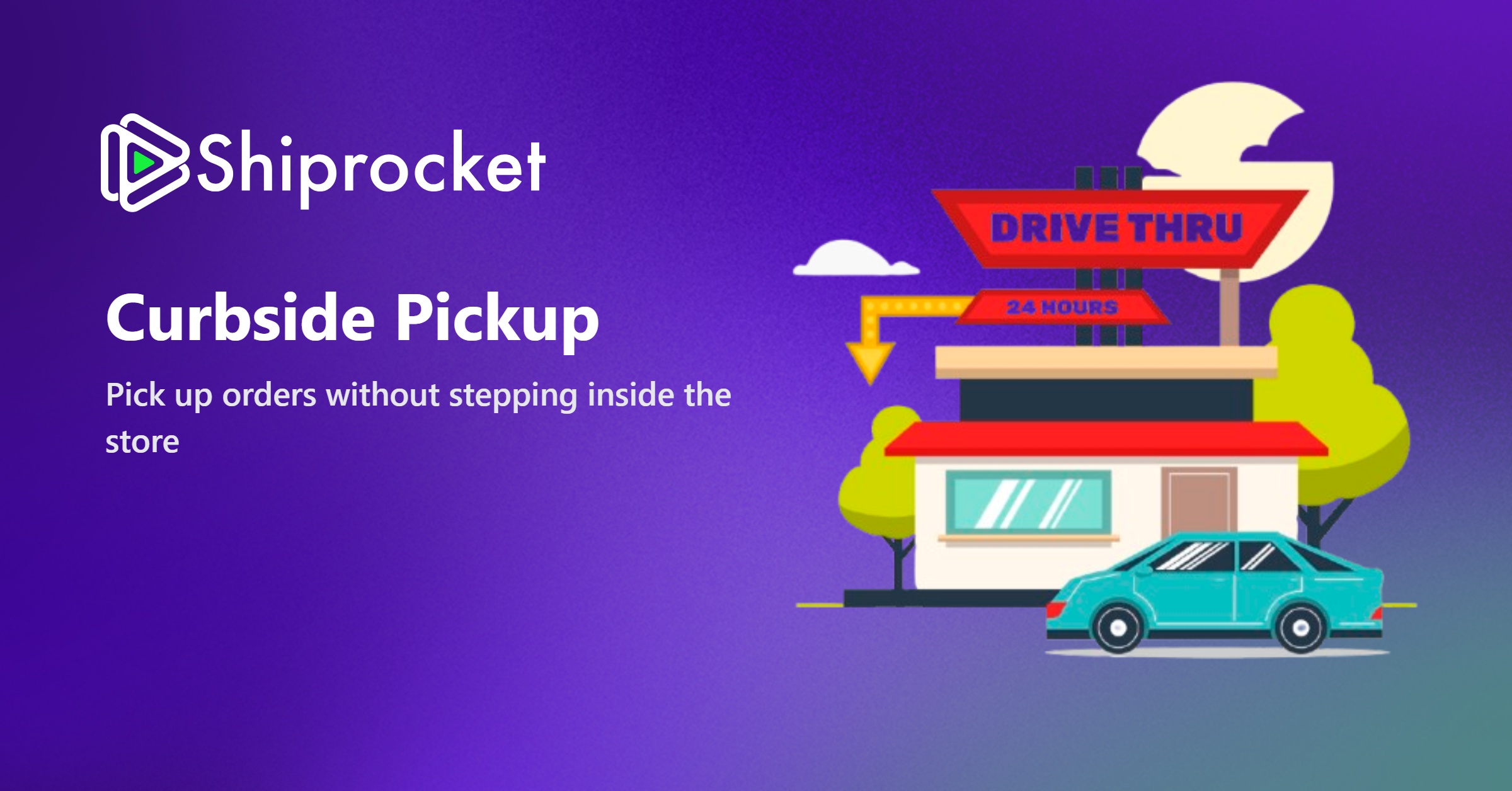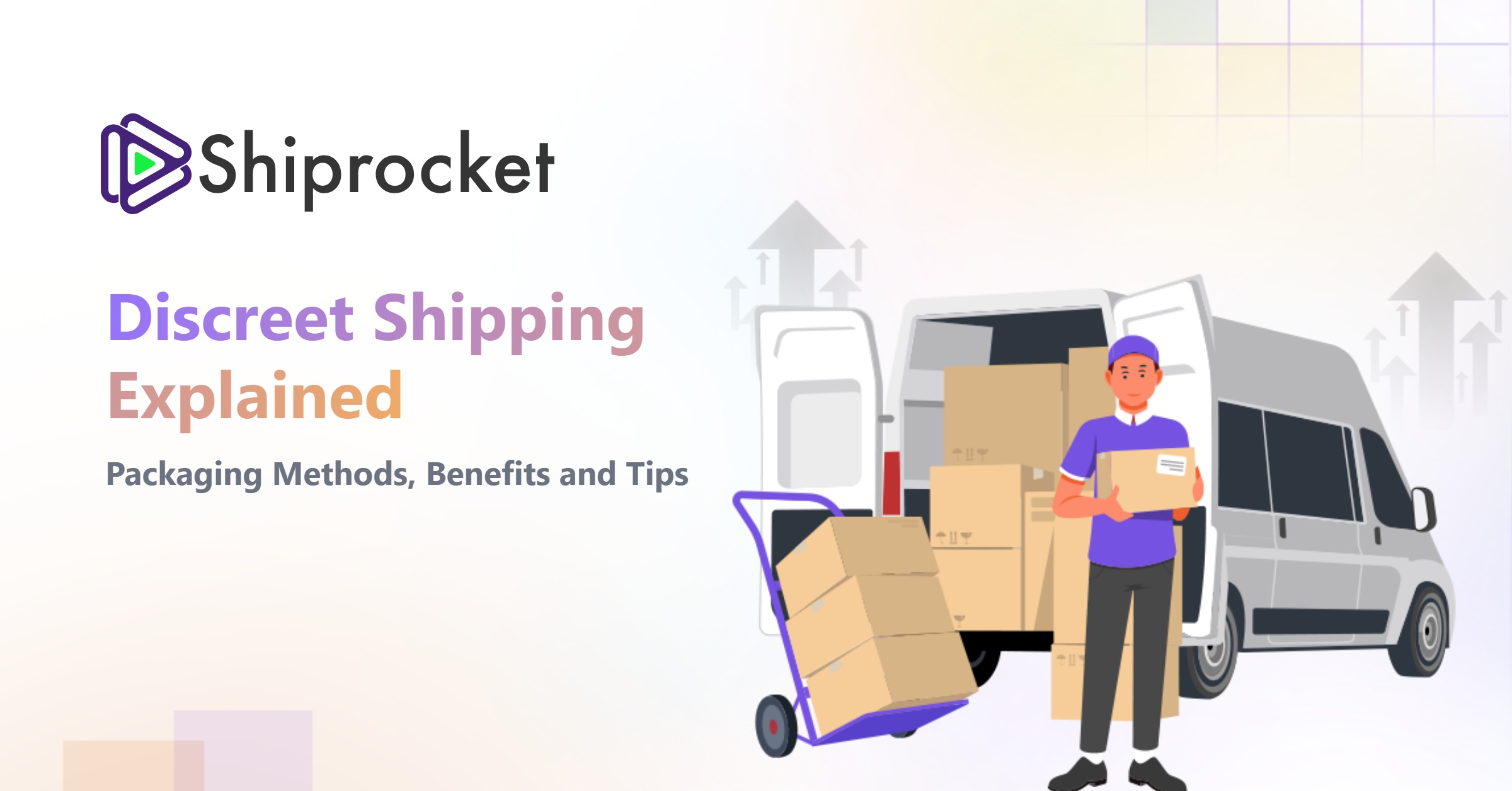AI in Logistics – Enhancing Efficiency, Accuracy, and Speed in 2026!
AI is already transforming logistics by automating warehouses, optimising delivery routes, improving demand forecasting, and reducing costs. The global AI logistics market is growing rapidly, showing strong adoption worldwide. Businesses using AI benefit from faster deliveries, lower shipping costs, reduced inventory holding, and better customer experience. While challenges like data quality, high initial investment, and cybersecurity exist, platforms like Shiprocket make AI adoption easier for sellers of all sizes. The future of logistics will be predictive, autonomous, sustainable, and deeply integrated with AI-driven decision-making.
AI isn’t just something from the future; it’s already changing how deliveries are made around the world. What’s evolving is how goods move from where they are made to where they are delivered. Companies are automating warehouses and finding the best ways to get packages to customers faster and more efficiently.
According to Precedence Research, the global AI logistics market was valued at USD 17.96 billion in 2024. The figures are remarkable; it is expected to grow at a rate of 44.4% per year and reach USD 707.75 billion by 2034. This highlights how widely AI is being adopted in logistics across the world.
Studies also show that when businesses use AI, their shipping costs drop by 5 to 20 percent and their stock levels by up to 30 percent. This is because AI enhances forecasting and automation. In warehouses, AI-powered robots are picking items up to 70% faster and with 99.5% accuracy, redefining operational excellence.
For many growing sellers, these advances are more than just industry trends; they mean faster deliveries, fewer errors, and better customer satisfaction without increasing effort. As logistics networks become more complex and customer expectations rise, AI helps businesses stay agile, efficient, and resilient. Here’s how AI is changing logistics in 2026.
What is Artificial Intelligence?
In simple terms, Artificial Intelligence (AI) is the ability of a machine (or a combination of devices) to make intelligent decisions (similar to what humans can) based on available data. These machines can independently learn to make better decisions based on their previous choices and the data they have collected. This process of self-learning by machines is also known as machine learning.
What Are the Key Benefits of AI in Logistics?
Efficiency and timing have always been crucial in the logistics industry. These are two areas where Artificial Intelligence (AI) is now making a big difference. The old ways of managing supply chains aren’t working anymore as eCommerce grows and customer expectations rise. To stay competitive, businesses need real-time insights, accurate predictions, and automation. AI gives them all of these.
- Enhances Operational Efficiency
AI automates repetitive, time-consuming tasks such as order sorting, inventory tracking, and shipment scheduling. This reduces human error and frees up staff to focus on more critical activities like customer service or strategic planning. AI-driven warehouse robots can pick items up to 70% faster and with 99.5% accuracy, redefining efficiency and reliability in logistics operations.
- Improves Decision-Making with Predictive Analytics
AI analyses past trends, customer behaviour, and market changes to predict how much stock businesses will need, maintain, and prepare for seasonal sales. Predictive analytics helps reduce waste, avoid overstocking or shortages, and ensure faster, smoother fulfillment across the supply chain.
- Ensures Cost Reduction and Resource Optimisation
With the help of AI tools, businesses can find more efficient ways to store, transport, and manage goods. Route optimisation powered by AI reduces fuel usage and delivery time, cutting shipping costs by up to 20 percent. By improving warehouse planning and inventory forecasting, businesses can also lower stock levels by up to 30 percent, saving costs and improving margins.
- Increases Delivery Speed and Accuracy
AI enhances warehouse operations and routing systems, helping companies fulfill orders without delay. Real-time monitoring allows them to track shipments, detect potential issues early, and ensure faster and more accurate deliveries. AI-powered systems also help coordinate multiple delivery partners and routes efficiently.
- Strengthens Customer Experience
AI allows businesses to be more transparent and proactive with their customers. Personalised delivery updates, voice-enabled tracking, and intelligent chatbots improve communication and build trust. Customers appreciate faster service, fewer delivery issues, and the ability to get instant support when needed.
- Enables Scalability and Flexibility
As businesses grow, AI-driven logistics systems automatically adjust to handle increased volumes during festivals, sales, or high-demand seasons without compromising performance. This scalability ensures consistent service quality even when order volumes surge.
In logistics, AI doesn’t just improve existing processes; it completely transforms how businesses operate. It turns raw data into actionable insights, keeps the supply chain flexible, and helps Shiprocket-powered businesses stay ahead in efficiency, accuracy, and customer satisfaction.
AI brings major advantages like automation, efficiency, and smarter decision-making, but adopting it also comes with challenges businesses need to understand and prepare for.
What Challenges Do Businesses Face When Adopting AI in Logistics?
AI is transforming the logistics industry, but it also comes with certain challenges. To use AI effectively, businesses need accurate data, the right infrastructure, and a mindset open to innovation.
Here are some of the main challenges that come with adopting AI in logistics:
- High Initial Investment
Setting up AI can be expensive. Businesses need updated IT systems, staff training, and investment in software and automation tools. These costs can be difficult for both large and small companies to manage. However, while the upfront expense is high, AI often saves time and money in the long run through greater efficiency and accuracy.
- Data Dependency and Quality Issues
AI systems work best when they have accurate, complete, and consistent data. In logistics, data is collected from multiple sources such as sensors, inventory management tools, vendors, and delivery partners. If the data is incomplete or inaccurate, it can result in poor predictions and flawed decisions, affecting the entire supply chain.
- Integration with Legacy Systems
Many logistics companies still use outdated ERP or tracking systems that rely heavily on manual data entry. Integrating AI with these legacy systems can be complex and time-consuming. In most cases, it requires custom integration or migration to newer, AI-compatible platforms to ensure smooth functioning.
- Cybersecurity and Privacy Risks
Handling large volumes of customer and business data makes cybersecurity a key concern. If AI systems are hacked, sensitive data can be exposed or misused. Businesses must implement proper encryption, authentication, and data protection policies to ensure secure AI usage and maintain customer trust.
- Need for a Skilled Workforce
AI tools are only effective when used by people who understand them. There is growing demand for professionals skilled in logistics, AI, and data analytics who can interpret insights accurately and align them with business goals. Without proper expertise, the benefits of AI may remain underutilised.
- Ethical and Operational Transparency
Some AI-driven decisions can be difficult to explain. For instance, when systems automatically select pricing or routing options, they may not clearly show how those decisions were made. This lack of transparency can create accountability challenges for businesses.
Despite these hurdles, AI continues to reshape the future of logistics. Many forward-thinking companies are overcoming these challenges by using advanced platforms like Shiprocket, which make it easier to adopt and benefit from AI in day-to-day logistics operations.
What Does the Future of AI in Logistics Look Like?
The future of logistics will be intelligent, predictive, and highly connected. Artificial Intelligence (AI) will be the main force driving this transformation. As technology evolves, AI will go beyond automating tasks to creating logistics networks that can think, adapt, and act in real time.
Here’s what the next phase of AI-powered logistics looks like:
- Predictive and Autonomous Supply Chains
In the coming years, AI will enable supply chains to manage more of their own operations. Predictive models will be able to detect demand fluctuations, weather-related disruptions, or traffic delays before they happen. With the integration of IoT sensors and smart contracts, supply chains will shift from being reactive to proactive, reducing downtime and ensuring more reliable deliveries.
- Autonomous Vehicles and Drones
The next generation of delivery vehicles and drones will be powered by AI, minimising the need for human drivers and accelerating last-mile deliveries. Self-driving fleets will analyse real-time traffic data, choose the most efficient routes, and operate round the clock. This will make same-day or even same-hour deliveries possible for eCommerce businesses, enhancing customer satisfaction.
- Hyper-Personalised Delivery Experiences
In the future, customers will expect more than just speed; they’ll want control and flexibility. AI will make this possible by enabling hyper-personalised delivery experiences. Buyers will be able to select preferred delivery windows, reroute packages in transit, and interact with smart chatbots that understand their preferences and behaviour, creating a more tailored experience.
- Sustainability and Green Logistics
As sustainability becomes a growing priority, AI will play a key role in building greener logistics systems. Algorithms will optimise routes for fuel efficiency, manage returns more effectively, and minimise waste through smart packaging and inventory planning. This will help logistics become not only faster and more efficient but also environmentally responsible.
- Deeper Human and AI Collaboration
Humans will continue to play an essential role. AI will act as an intelligent assistant, enhancing human capabilities rather than replacing them. Predictive dashboards powered by AI will support logistics professionals in making faster, data-driven decisions. The collaboration between people and AI will result in more agile, resilient, and responsive supply chain operations.
As this AI-powered future takes shape, logistics leaders are already moving in this direction. Platforms like Shiprocket are at the forefront of this change in India, using AI to simplify fulfillment, optimise costs, and deliver smarter, faster logistics solutions.
How Shiprocket Leverages AI to Power Smarter Logistics?
AI has transformed how logistics operations function worldwide, and it lies at the heart of how Shiprocket works. The platform enables thousands of Indian businesses to ship products faster, smarter, and more efficiently by automating key logistics processes and providing real-time intelligence.
Here’s how Shiprocket uses AI to revolutionise logistics operations:
- Smart Courier Allocation
Based on factors like price, serviceability, delivery speed, and past performance, Shiprocket automatically selects the best courier partner for each shipment. This intelligent matching process helps reduce manual effort and costs while ensuring faster, safer deliveries and a better customer experience.
- AI-Driven Route Optimisation
Using real-time data and predictive algorithms, Shiprocket identifies the most efficient delivery routes. It takes into account traffic patterns, weather forecasts, and regional restrictions to ensure faster deliveries and significant cost savings for businesses.
- Automated Order Tracking and Notifications
AI enables Shiprocket to track packages seamlessly across multiple courier partners. Businesses receive real-time updates and notifications through SMS, email, or the dashboard, ensuring complete transparency throughout the delivery process.
- Predictive Fulfillment and Demand Forecasting
Shiprocket’s AI-powered fulfillment network forecasts order growth and ensures consistent stock availability across warehouses. By positioning inventory closer to demand hubs, it helps reduce delivery time and optimise warehouse space utilisation.
- Dynamic Pricing Insights
AI algorithms analyse courier rates, delivery performance, and regional trends to recommend the most cost-effective shipping options. This data-driven insight helps businesses minimise shipping costs, improve profitability, and optimise cash flow.
Ready to work faster and smarter? Shiprocket’s AI-powered logistics platform can help you automate courier selection, optimise routes, and track shipments in real time; ensuring smoother, more efficient operations for your business. Start shipping smarter with Shiprocket today.
Conclusion
AI-powered tools are enhancing efficiency and reducing the overall expenditure involved in the logistics processes. With this advanced technology, businesses can make informed decisions when it comes to maintaining appropriate inventory levels in the warehouse and deciding delivery routes for their riders. AI in logistics helps in real-time tracking of items in the warehouse and packages that are out for delivery. Various tasks such as route optimisation, demand forecasting, and packing can be done with ease using artificial intelligence. It increases speed and accuracy. By adopting this new-age technology, businesses can gain an edge over their competitors.
AI enhances every stage of logistics; from forecasting demand to managing warehouses and optimising deliveries, by turning data into actionable insights and automating repetitive processes.
AI uses real-time analytics to adjust routes instantly, reducing transit delays and ensuring more precise delivery timelines, even during high-demand or unpredictable weather conditions.
Yes, affordable AI-powered tools like Shiprocket help small businesses automate courier selection, improve visibility, and forecast demand—without requiring heavy infrastructure investments.
Key hurdles include data quality issues, cybersecurity concerns, and the need for skilled professionals to interpret AI insights and integrate them with existing systems.
AI will drive fully autonomous supply chains, predictive logistics networks, and sustainable delivery models, enabling businesses to offer faster, smarter, and more eco-friendly shipping experiences.








Great content. I would just like to add on that With the growing digitization of the professional world, more and more companies are adding artificial intelligence (AI) to their supply chain in order to maximize their resources by reducing the time and money spent on figuring out how, where and when to send a package to a certain place.